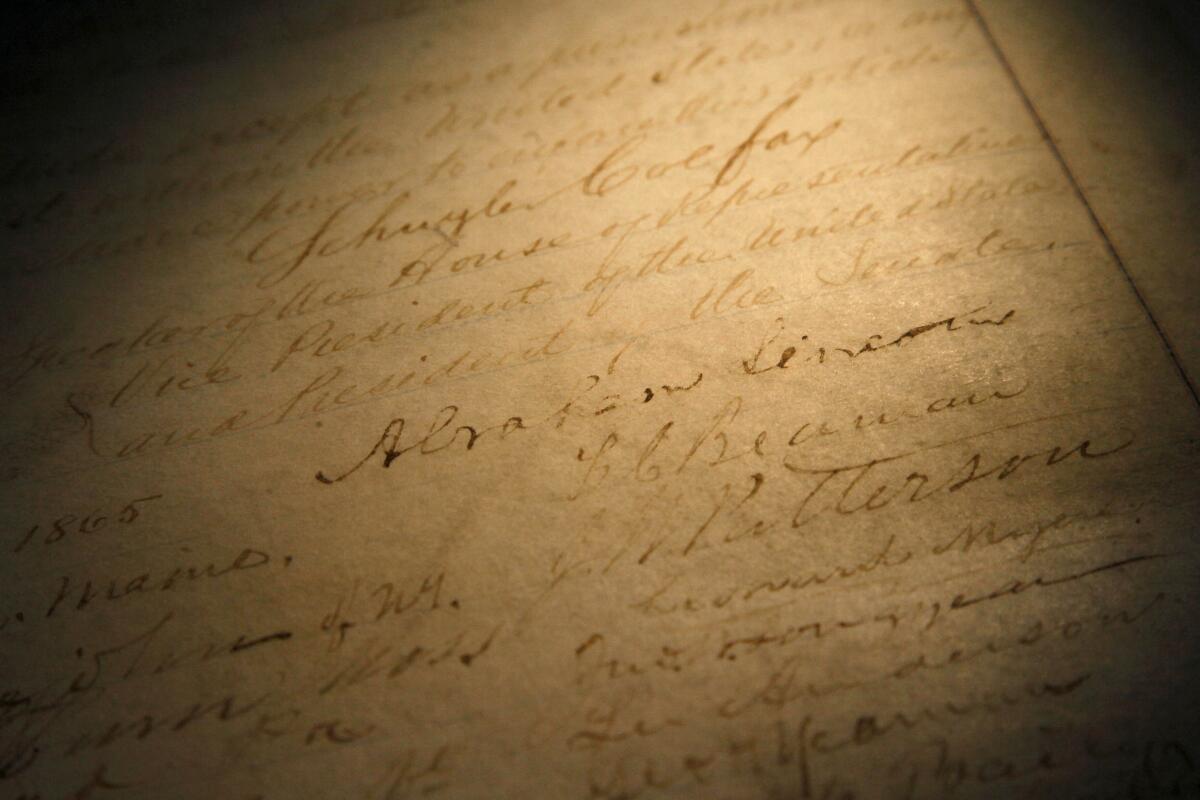Letters to the Editor: Is America’s original sin racism or greed?

- Share via
To the editor: Stephanie Coontz’s op-ed article on the horrors and heroes of American history is an honest and insightful grappling with our checkered past. I particularly appreciated her point that profit, not racism, was the primary force in the expansion of the slave trade.
I have often heard it said that racism was our nation’s original sin, but I’d suggest instead that it was avarice. In noting this I do not in any way mean to downplay the severity or ubiquity of past and present racism, but rather to point out that greed has almost always fed our prejudice.
We still struggle to be honest about how our nation has been affected by the insatiable desire for more. On the contrary, the accumulation of wealth is often celebrated as a sign of individual value, the proof of the viability of the American dream.
I wonder if we as a society will ever make significant headway in wrestling with our racism until we are honest about the foundation upon which it was built.
Derek Engdahl, Pomona
..
To the editor: In her article on American history and how it should be taught, Coontz casts John Brown as one of the heroes of the abolitionist movement. Alas, she fails to even mention the notorious Pottawatomie massacre in 1856 Kansas Territory.
Every book I have read on the origins of the Civil War mentions the sacking of Lawrence, Kan., by pro-slavery settlers and the subsequent massacre of five pro-slavery settlers in front of their families by Brown and his sons.
Her omission of this incident is not surprising, given the so-called culture wars prevalent in our society today. Thus, it is ironic for Coontz to finish her article by stating that “an unflinching account of American history can actually give us hope for the future.” Indeed.
Daniel Connell, Moorpark
..
To the editor: I agree that the heroes of American history do not get enough attention. Sojourner Truth and Frederick Douglass get some. Labor leaders get very little.
Never heard of Smedley Butler? That’s OK. Neither have two University of California graduates with history degrees I know. An ex-Marine friend learned about Butler’s military career while in boot camp, but that’s all.
Butler was a Marine general who served 33-plus years and won two Congressional Medals of Honor. During retirement he marched with the Bonus Army in 1932, wrote “War Is a Racket” and testified in 1934 before the House McCormack-Dickstein Committee about being approached to lead a coup against President Franklin D. Roosevelt.
To paraphrase Coontz, the only people who should feel discomfort in learning the story of U.S. history are those who benefit mightily from people not learning it.
Steve Varalyay, Torrance




